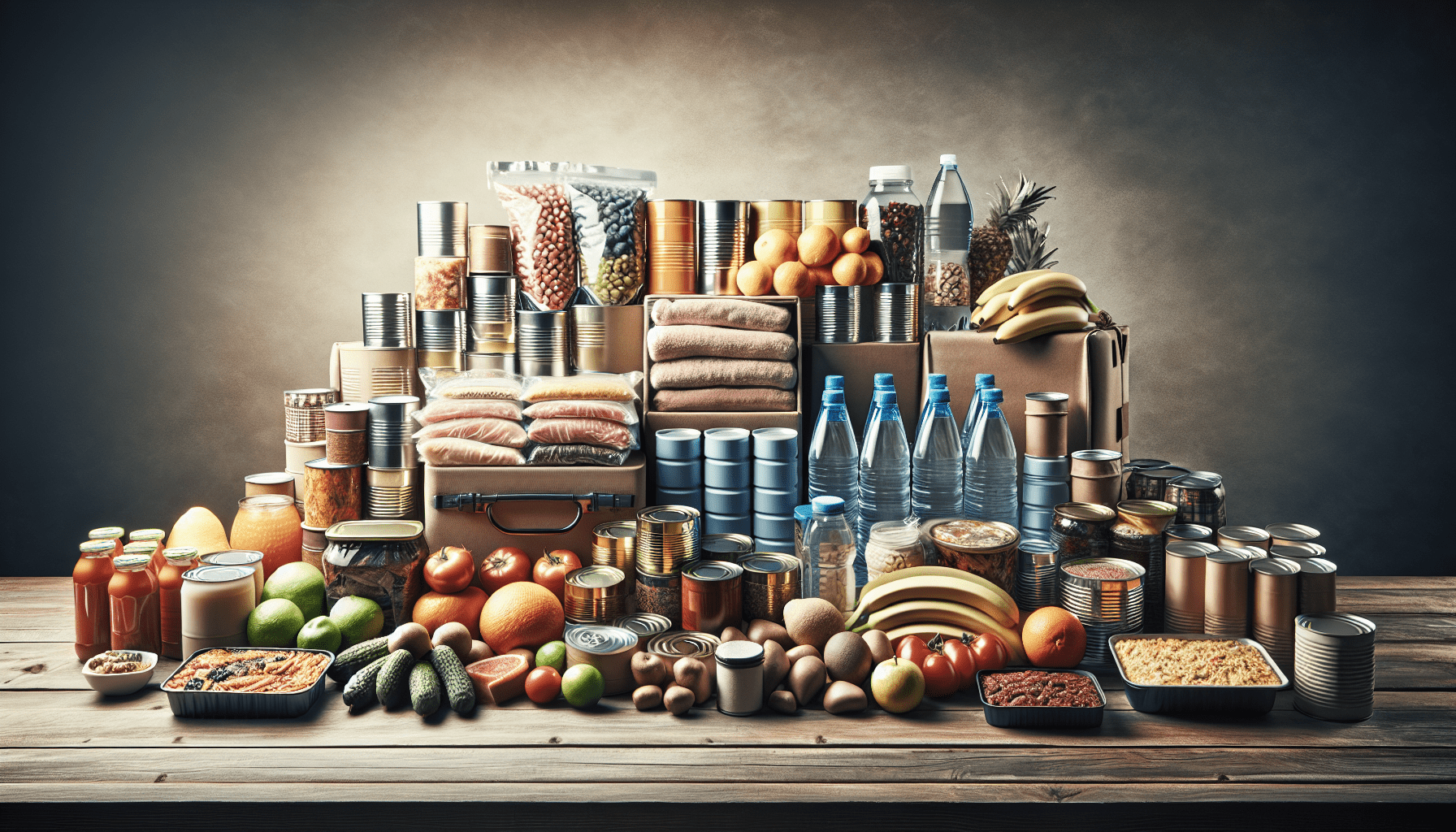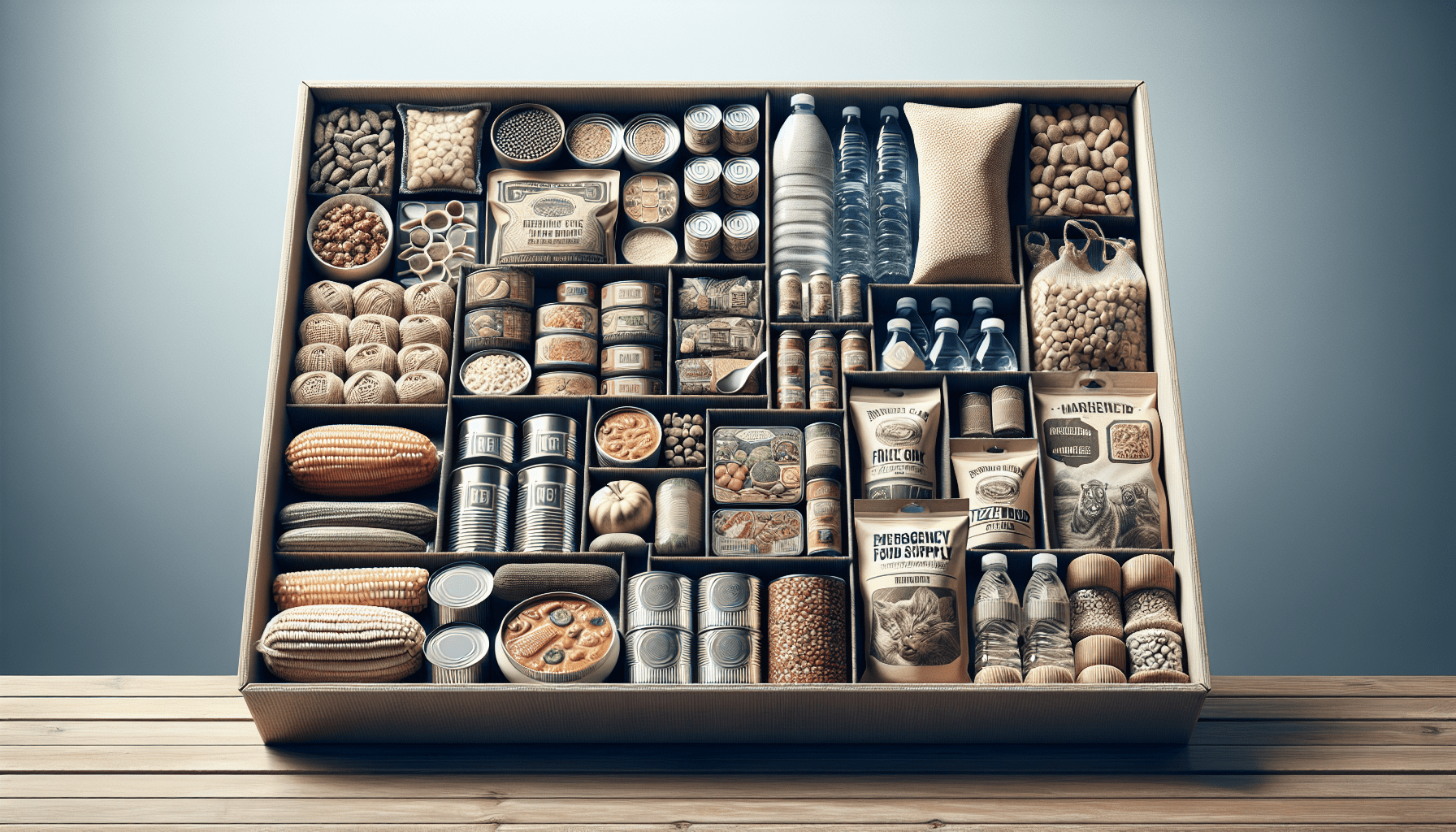Have you ever found yourself questioning what to do with your emergency food supply? Maybe you’ve built up a significant reserve over the years and now you’re considering the possibility of selling some of it. As you navigate this curious territory, it’s essential to have all the information you need to make informed decisions. This guide will walk you through the considerations and steps involved if you’re thinking about selling your emergency food supply—with a friendly touch.

Understanding Your Emergency Food Supply
What Constitutes an Emergency Food Supply?
An emergency food supply typically consists of non-perishable items intended to sustain you through unforeseen situations like natural disasters, economic downturns, or personal emergencies. These supplies usually include canned food, freeze-dried meals, dried grains, and other foods with a long shelf life.
Why Do People Accumulate Emergency Food Supplies?
People stockpile emergency food for various reasons, including preparedness for natural disasters such as hurricanes or earthquakes, unexpected power outages, or even financial crises. For others, it might simply be about having a sense of security and self-sufficiency.
Legal Considerations Before Selling
Is It Legal to Sell Your Emergency Food Supply?
The legality of selling your emergency food supply can vary depending on location and the type of products you intend to sell. It’s important to check local laws and regulations regarding the resale of food items, as these can differ significantly from one region to another.
Regulations on Food Resale
There might be specific regulations you need to comply with, especially if the food items were initially bought in bulk. Health and safety standards need to be met, and in certain jurisdictions, selling food might require a permit or license. It’s worth consulting with local authorities or legal experts to ensure you’re compliant.
Potential Restrictions on Specific Food Types
Some food items have stricter regulations due to their nature. For example, meat products might have different requirements compared to canned or dry goods. Understanding these specifics will help prevent any legal issues during your selling journey.
Assessing Your Food Supply
Evaluating the Quality of Your Stock
Before considering selling, it’s crucial to assess the quality of your food supply. Check for expiration dates, signs of damage, or spoilage. It’s unethical and often illegal to sell items that are unsafe for consumption.
Shelf Life and Storage Conditions
Your food’s longevity depends heavily on how well it’s been stored. Ensure that items have been kept in optimal conditions—cool, dark, and dry spaces are ideal for most non-perishables.
Determining the Value of Your Emergency Food Supply
How to Price Your Items
Pricing can be a tricky balance of covering your costs, adding a profit margin, and staying competitive. Research the current market value for similar products by visiting stores or online platforms. Adjust prices depending on the condition, brand, and demand of your items.
Table: Factors Affecting Price
| Factor | Description |
|---|---|
| Brand Recognition | Well-known brands can demand higher prices due to perceived quality and trust. |
| Shelf Life Remaining | Products with longer shelf lives are generally more desirable and can be priced higher. |
| Market Demand | High demand for certain items can allow for higher pricing, especially in times of scarcity. |
| Condition of Packaging | Intact and undamaged packaging increases buyer confidence, allowing you to set higher prices. |
Packaging and Presentation
Good packaging and presentation can increase the perceived value of your food supply. Consider repackaging items if allowed by law, ensuring that they are clean and well-presented, possibly even grouped in handy packs for a more attractive proposition.

Where to Sell Your Emergency Food Supply
Locally vs. Online Platforms
You have various options for where to sell your food supply. Local sales can be straightforward and immediate, while online platforms may increase your reach but come with their own set of challenges, like shipping considerations.
Selling Locally
Local sales options include community markets, garage sales, or local classifieds. Selling locally allows you to avoid shipping hassles, and buyers often appreciate the personal connection and immediate transactions.
Exploring Online Marketplaces
Platforms like eBay, Craigslist, or even specialized sites for food and survival gear can be beneficial. However, remember to account for shipping costs, platform fees, and the need to set up and manage your sales listings.
Engaging with Potential Buyers
Building Trust with Transparency
Building trust is crucial when selling your food supply. Be transparent about the condition, origin, and any relevant details of the food items you’re selling. Providing detailed descriptions and answering questions promptly can help instill confidence in potential buyers.
Open and Effective Communication
Good communication can make a big difference. Whether it’s through emails, messages on a platform, or face-to-face meetings, maintaining open channels ensures a smoother transaction process and happier customers.

Strategies to Sell Successfully
Creating Effective Listings
If selling online, create engaging and honest listings. High-quality photos and detailed descriptions can significantly enhance the attractiveness of your offerings. Highlight any unique selling points, such as long shelf life or premium brand, to entice buyers.
Table: Essential Components of a Good Listing
| Component | Importance |
|---|---|
| High-Quality Photos | Visuals draw in buyers and provide confidence. |
| Detailed Descriptions | Clear, truthful details help manage expectations. |
| Pricing Information | Transparent pricing prevents misunderstandings. |
| Shipping Details | Clarity on shipping costs and times reassures buyers. |
Negotiating Like a Pro
Negotiations are often part of the selling process. Be prepared to negotiate prices and terms but set limits so you don’t undersell yourself. Understand the value of your items and be willing to walk away if the buyer isn’t offering a reasonable deal.
Ethical Considerations
Moral Responsibility When Selling Food
When selling food items, there is a moral responsibility to ensure they are safe and consumable. Honesty in representing the quality and safety of your goods is non-negotiable, as what you’re offering directly impacts your buyer’s health and well-being.
Avoiding Exploitation and Price Gouging
While the right pricing strategy is crucial, avoid taking advantage of high-demand situations unethically. Price gouging—unreasonably increasing prices during times of crisis—can damage your reputation and lead to legal repercussions.

Handling Logistics
Packaging for Safety
Ensure all items are securely packaged to prevent damage during transit, especially if shipping to distant locations. Consider moisture-resistant and sturdy packaging materials to protect the integrity of food items.
Managing Shipping and Handling
If you’re selling online, finding a reliable shipping provider is key. Consider speed, cost, and reliability when choosing a shipping service. Additionally, understanding how to properly label packages will ensure safe and timely delivery.
After the Sale
Follow-Up with Buyers
Maintaining good relations post-sale can lead to repeat business or word-of-mouth referrals. Check in to ensure buyers are satisfied and handle any issues promptly to maintain your reputation as a trustworthy seller.
Soliciting and Responding to Feedback
Encourage buyers to leave feedback and use it to improve your sales approach. Responding to both positive and negative feedback constructively can enhance your credibility and help build a strong selling presence.

Conclusion
Considering selling your emergency food supply can open up avenues for financial gain as well as space savings in storage. However, careful attention to legal, ethical, and practical aspects is crucial for a successful endeavor. With these guidelines, you’re well-equipped to make informed decisions and navigate the sales process effectively, ensuring your efforts are rewarding both financially and ethically.

